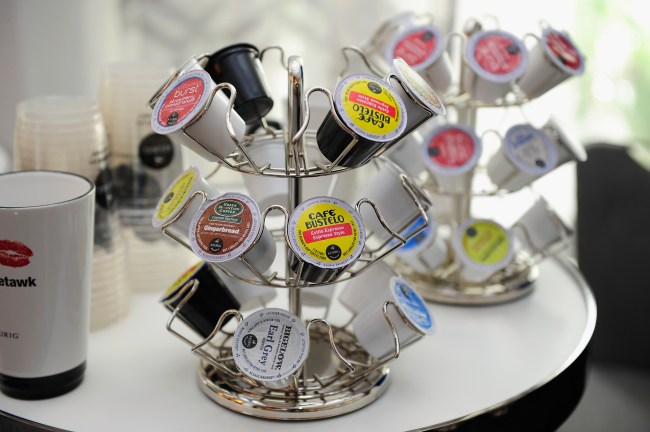
Keurig Green Mountain made $4.7 billion in revenue last year alone, and much of it came from K-Cups — the single-shot contraptions that require a special machine (made by Keurig) for proper utilization. They’re everywhere these days, and that’s not just because they sell so well. It’s also because most of the plastic used in their manufacturing is neither recyclable nor biodegradable, and their creator regrets this very much.
In an interview with the Atlantic, John Sylvan discussed his billion-dollar brainchild and its ongoing battle with consumer popularity, steadily increasing profits, and growing concerns about its inherent wastefulness:
Looking back on his invention, amid increasing public condemnation of K-Cups as a scourge on the planet, Sylvan told me, “I feel bad sometimes that I ever did it.”
How bad are K-Cups for the environment? Pretty bad, according to Sylvan’s own admissions and the research behind the components and processes Keurig uses to manufacture them:
“No matter what they say about recycling, those things will never be recyclable,” Sylvan said. “The plastic is a specialized plastic made of four different layers.” The cups are made from plastic #7, a mix that is recyclable in only a handful of cities in Canada. That plastic keeps the coffee inside protected like a nuclear bunker, and it also holds up during the brewing process. A paper prototype failed to accomplish as much.
And because the K-Cup is made of that plastic integrated with a filter, grounds, and plastic foil top, there is no easy way to separate the components for recycling. A Venn diagram would likely have little overlap between people who pay for the ultra-convenience of K-Cups and people who care enough to painstakingly disassemble said cups after use.
Mind you, this can all be contextualized by the fact that Sylvan sold his share of the company in 1997 for $50,000, small potatoes compared to Keurig Green Mountain’s current financial success. But the inventor maintains his chief regret is the product’s inability to be anything other than harmful to the environment.
To prove the point, here’s a post-apocalyptic video Sylvan found and sent the interviewer about the mass destruction K-Cups have wrought. I look forward to its feature film adaptation in the near future.
Via the Atlantic
